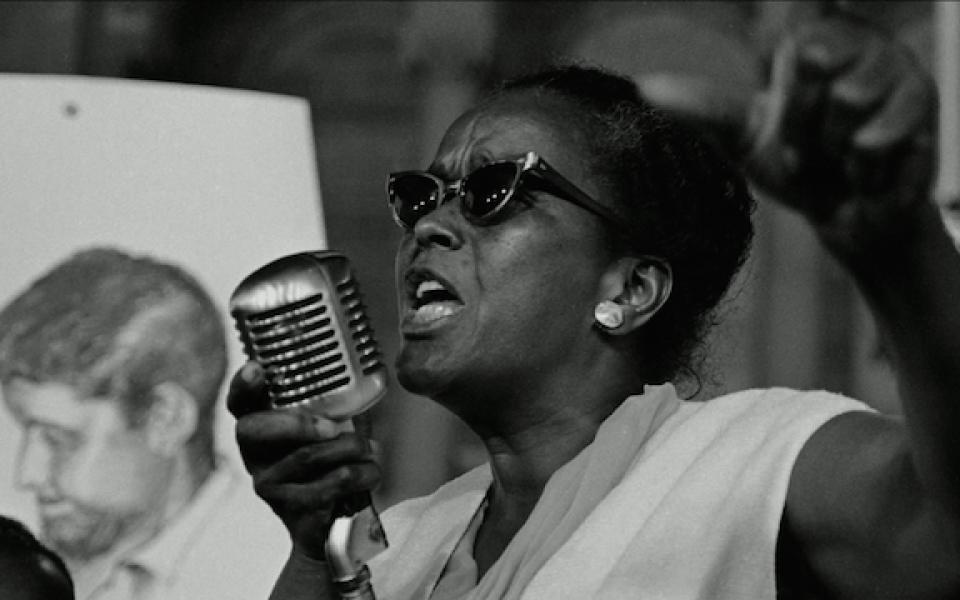- Ella Baker
A major architect of the Civil Rights Movement, Baker influenced initiatives of the NAACP, Southern Christian Leadership Conference and the Student Nonviolent Coordinating Committee. Through SNCC, she helped organize the Freedom Summer of 1964 and became a fierce advocate for voting rights. - Julius L. Chambers
Chambers’ childhood in Jim Crow-era Montgomery County informed his prodigious legal career. Chambers successfully litigated a number of key cases before the US Supreme Court including the school busing decision in Swann v. Charlotte-Mecklenburg Board of Education (1971), and two important Title VII employment discrimination cases Griggs v. Duke Power Co. (1971) and Albemarle Paper Co. v. Moody (1975). - Rev. Gary Davis
Davis was a blues and gospel singer and a guitarist known for his signature fingerpicking style that influenced artists like the Grateful Dead. Born in South Carolina, Davis lived most of his life in Durham, a black cultural center of the Piedmont blues scene in the mid-1920s. - Michael Jordan
No explanation needed. - Gertrude Weil
Born in Goldsboro, this Jewish-American activist stood at the forefront of a number of political issues. In 1920, she established the North Carolina League of Women Voters, dedicated to educating women about the political system and newly won rights. Weil buoyed anti-lynching organizations in the ’30s and helped win a number of labor rights for women factory workers. - Velma Hopkins
This labor and racial rights activist played a pivotal role in the 1943 strike at Plant No. 65 of RJ Reynolds Co., the largest tobacco manufacturing facility in the world at the time, and helped found the Local 22 of the Food, Tobacco, Agricultural and Allied Workers of America-CIO labor union. A highway marker memorializing the strike stands at the intersection of Fourth Street and Dr. Martin Luther King, Jr. Drive, but a marker is no statue and this local legend deserves veneration.
Join the First Amendment Society, a membership that goes directly to funding TCB‘s newsroom.
We believe that reporting can save the world.
The TCB First Amendment Society recognizes the vital role of a free, unfettered press with a bundling of local experiences designed to build community, and unique engagements with our newsroom that will help you understand, and shape, local journalism’s critical role in uplifting the people in our cities.
All revenue goes directly into the newsroom as reporters’ salaries and freelance commissions.


+1 for John Coltrane
He’s already got one in High Point, but I don’t think another would be out of order.
Great idea. Weil doesn’t have an “s”.
Fixed, thanks!